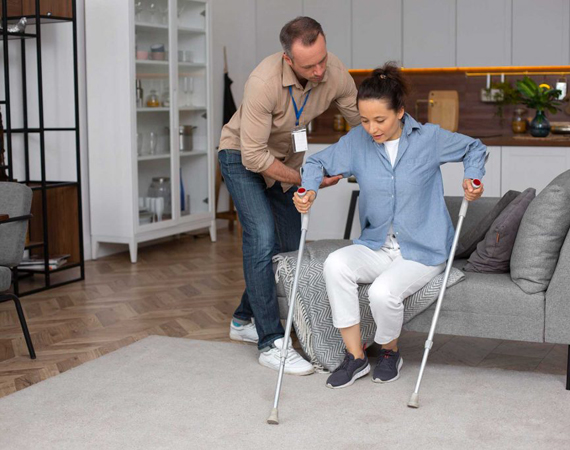Supported Independent Living (SIL) Services under the National Disability Insurance Scheme (NDIS) in Australia are designed to provide individuals with disabilities the opportunity to live independently in a supported environment. SIL services offer a range of supports and assistance tailored to the individual’s needs, promoting autonomy, community inclusion, and quality of life. Here’s a detailed description of Supported Independent Living (SIL) Services under NDIS in Australia:
- Individualized Support Plans: SIL services begin with the development of an individualized support plan based on the individual’s goals, preferences, support needs, and desired level of independence. The plan is created in collaboration with the participant, their family, and relevant stakeholders.
- Accommodation Options: SIL services encompass various accommodation options such as apartments, townhouses, shared houses, or other independent living arrangements. The accommodation is chosen based on the individual’s preferences, accessibility requirements, and suitability for their needs.

- 24/7 Support Availability: SIL services provide around-the-clock support and supervision, ensuring that individuals have access to assistance whenever needed, including during emergencies, weekends, and holidays. Support staff are available to provide guidance, assistance, and encouragement as required.
- Personal Care and Daily Living Support: Support workers assist individuals with personal care tasks such as bathing, dressing, grooming, toileting, medication management, meal preparation, eating, and household chores. They promote independence while providing necessary support based on the individual’s abilities.
- Healthcare Coordination: SIL services may involve coordinating healthcare needs, appointments, medication administration, accessing medical services, liaising with healthcare professionals, and managing health-related routines as required.
- Life Skills Development: Support workers facilitate the development of life skills necessary for independent living, such as budgeting, shopping, cooking, laundry, cleaning, time management, transportation planning, communication skills, and decision-making.
- Social and Recreational Activities: SIL services encourage individuals to engage in social, recreational, and leisure activities both within their living environment and in the community. This promotes social inclusion, friendships, engagement, and a sense of belonging.
- Community Integration: Individuals are supported in integrating into their local community, accessing community facilities and services, participating in community events, volunteer opportunities, and recreational programs, and building social connections.
- Individual Choice and Control: SIL services prioritize individual choice, autonomy, and decision-making. Participants have the freedom to make choices about their living arrangements, support preferences, daily routines, activities, and lifestyle.
- Accessibility and Modifications: Accommodations provided through SIL services are designed to meet accessibility standards and may include modifications or adaptations to support the individual’s mobility, sensory needs, and safety requirements.
- Staff Training and Professional Development: Support workers receive training, ongoing education, and professional development to ensure they have the skills, knowledge, and expertise to provide high-quality support, implement person-centered plans, and respond effectively to individual needs.
Overall, Supported Independent Living (SIL) Services under NDIS in Australia aim to empower individuals with disabilities to live independently, make choices about their lives, develop skills, participate in their community, and enjoy a fulfilling lifestyle with the necessary support and assistance available to them. SIL services promote inclusion, dignity, and self-determination for participants.
